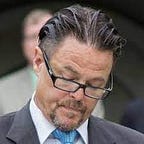On This Day: Paul Robeson, Harlem Renaissance Man
On this day in 1976, actor, athlete and activist Paul Robeson dies from a stroke in Philadelphia, PA; he was 77. Born to a former slave father and abolitionist mother, at 17 Robeson earned a scholarship to Rutgers University, the third African American to do so, and became one of the institution’s most stellar students. He received top honors for his debate and oratory skills, won 15 letters in four varsity sports, was named an All-American in football twice, was elected Phi Beta Kappa and became his class valedictorian.
From 1920 to 1923, Robeson earned a law degree from Columbia University, teaching Latin, playing pro football on the weekends and picking up acting parts to pay tuition. In 1921, he wed fellow Columbia student, journalist Eslanda Good; the two would endure a complicated relationship and marriage for more than 40 years, bringing one son into the world in 1927, Paul Robeson Jr.
Disenchanted by rampant racism in the law, Robeson turned to acting full-time, starring in both stage and film versions of The Emperor Jones and Show Boat, appearing on Broadway, owning the role of Othello and becoming an immensely popular screen and song presence of international renown. A leading light of the Harlem Renaissance, with this notoriety Robeson spoke out against racism and became a world activist, traveling, lecturing and marching in support of civil rights and social justice.
Visiting the Soviet Union in 1934, Robeson became increasingly identified with strong left-wing tendencies, while continuing his success in concerts, recordings, and theatre. Though Russophilia may have been acceptable during the “Devil’s Baragin” of WW2, such affections were no longer de rigueur with the descent of the iron curtain. Visiting President Truman in 1946, Robeson was ejected from the White House for suggesting the continued lynching of blacks might lead to organized self-defense.
In 1950 the US State Department withdrew Robeson’s passport when he refused to sign an affidavit disclaiming membership in the Communist Party; shortly thereafter he was blacklisted during the paranoia of McCarthy’s HUAC-committee. In the following years he was virtually ostracized in the US, but remained viable in the UK with an assist from the Labour Party. Unable to travel abroad, Robeson in fact performed twice in Britain through use of the Transatlantic Telephone Cable (TAT-1). In 1958 the Supreme Court overturned the affidavit ruling, and in that same year Robeson published his “manifesto-autobiography” Here I Stand (1958).
Staging a vigorous comeback, Robeson utilized London as his hub for a whirlwind of live engagements in Britain, Europe, Oceana and the USSR; he was in fact the first person of color to perform at St. Paul’s Cathedral, London, since its construction in 1675. However, now in his 60’s, the compendium of his life took its toll as Robeson suffered from a series of physical and emotional health episodes which ultimately led to his retirement in 1963. Returing to the States, Robeson lived out his days with family after the loss of wife Essie.
Of his larger mission in life, Robeson remarked “we must join with the tens of millions all over the world who see in peace our most sacred responsibility.”
